Why Is My Dog Peeing on My Bed?
Here’s what may be going on — as well as some tips on how to fix this unfortunate behavior.
Here’s what may be going on — as well as some tips on how to fix this unfortunate behavior.
by Daniela Lopez, | August 25, 2025
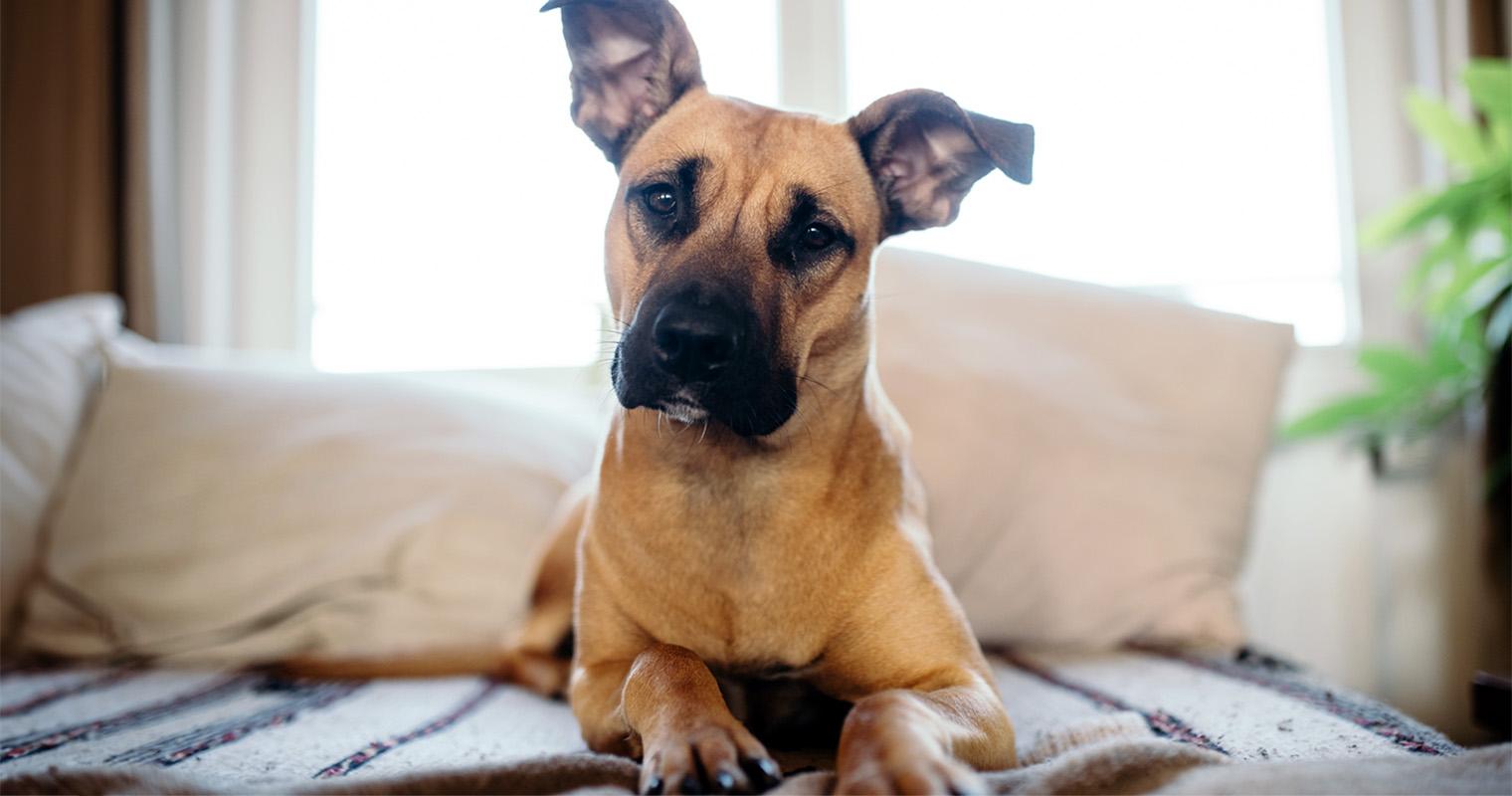
Dom Stuart / Stocksy
So you’ve had to strip your bed more times than you’d like this week, and you’ve considered buying stock in urine odor-removal products. Whether a new puppy or a dog you’ve had for years, it can be so frustrating when your dog pees where they shouldn’t — and especially when it’s on your bed. And although it might feel deliberate — I know, I’ve been there — it’s not.
There are many reasons a dog might pee on your bed, including a medical condition, excitement, leaving their scent, or anxiety. Although it’s annoying, it’s important not to yell at or punish your dog, because that won’t stop the behavior. Instead, pinpoint the reason for the inappropriate urination, so you can address it properly. Here are a few ways to figure out what’s going on with your dog and their unusual peeing habits.
Below are the most common causes for a dog’s bed-peeing behavior.
The most common nonmedical reasons for a dog peeing on a bed are anxiety and stress. You’ll see this theme pop up again and again in this article, because when a house-trained dog suddenly starts peeing in odd places, it’s usually their way of saying that something’s off.
Dogs mark to communicate with others. A mark, most commonly used by unneutered males, explains to other dogs who they are and that they’ve been there. But it can also be a stress response or a way to add a familiar scent. If you think your dog might be trying to announce their presence with marking, the best way to stop marking to go back to potty training 101.
That means when you can’t supervise your dog, keep them in a crate or use gates to block access to areas they have marked. It’s crucial to keep a close eye on your dog — you can even tether them to you to keep them close.
If they show any signs of needing to pee or mark, promptly take them outside and reward them with a super tasty treat for going in the appropriate place. Because they can also smell past accidents, which invites continued accidents in a certain spot, use an enzymatic cleaner to eliminate urine odors.
Unlike marking, submissive urination is an involuntary response some dogs have when they are frightened or insecure. It cannot be resolved through house training. Counterconditioning can help, basically rewarding your dog for positive behavior during moments that would normally trigger fear. Pair that with fear-reducing tactics, such as approaching them slowly, staying low, and avoiding direct eye contact, and you can often make real progress in reducing the behavior.
If your dog struggles with submissive urination, your best move is to connect with a certified behaviorist or trainer who can guide you through the process.
Dogs thrive on routine. So when something messes with their schedule, whether it’s a vacation, houseguests, or a shift in their usual walk time (because you got a new job, for instance), it can throw them off completely. Anxious dogs, in particular, are more likely to spiral when things feel unpredictable, and they react with behaviors such as bed wetting in response to stressful situations. Take note of anything new that could be stressing your dog out.
If you have an older dog, incontinence — involuntary leaking — could be the cause of bed wetting, especially if you share your bed with your dog at night. As dogs age, they may naturally experience weakened bladder muscles and may pee during sleep.
There are a host of other medical issues that can lead to bed urination, ranging from urinary tract infections and hormonal imbalances to more serious conditions such as diabetes, kidney disease, or neurological problems such as canine cognitive dysfunction. It’s important to have your dog checked out by a veterinarian, especially if the bed wetting is new or sudden.
If your dog hasn’t peed or marked indoors before, and suddenly starts peeing on the bed, it’s important to reach out to a veterinarian who can help diagnose the issue. Once medical issues are ruled out, you can come up with a training plan.
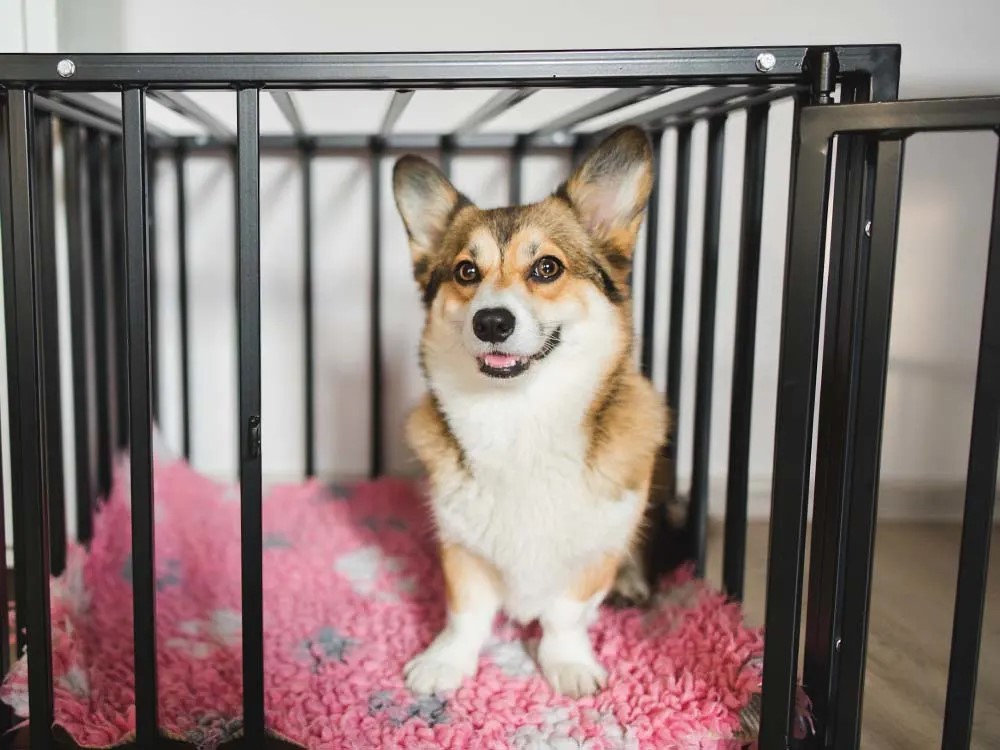
Looking to crate train your puppy? If you follow these tips, crate training your pup can go smoothly.
If the problem is ongoing, a medical reason has been ruled out, and you can’t find a solution, enlist the help of an animal behaviorist who can work with you to stop your dog from peeing in the house.
Keep your pet under close supervision: Consider locking the pet out of your bedroom, or only allowing the pet in your bedroom while on a leash or in a crate, so they can’t get on your bed. This will protect your bedding and mattress until you are able to resolve the issue.
Start potty training again: Begin taking your dog outside more often for potty breaks and enthusiastically reward them with praise and treats when they go to the bathroom outside.
Record what’s going on: When an accident occurs, note what happened just before the accident. There are many reasons a dog may pee on the bed, including anxiety and excitement. Did you come into the room and pay lots of attention to the dog just before they urinated? It was probably due to excitement. Did something startle or frighten them just before the accident? It was likely anxious or nervous urination.
If your dog is a very young puppy, there is a good chance the behavior will stop on its own with regular puppy training. Puppies haven’t yet learned to control their bladders, so they may urinate anywhere. As they grow and gain better control, it’s likely to stop.
Occasional accidents can happen with any pup, even a very well-trained dog. If it’s just a one-off occurrence, you probably don’t have much to worry about but if the behavior started suddenly, see a vet right away. When a housebroken dog suddenly starts peeing on the bed, there is a good chance a medical condition is to blame. Diabetes, urinary tract infections, and spinal injuries are a few possibilities.
Horwitz, Debra, and Gary Landsberg. “Dog Behavior Problems - House Soiling.” Vca_corporate, 2009, vcahospitals.com/know-your-pet/dog-behavior-problems-house-soiling.
Paul Pion, D. V. M., and Gina Spadafori. “Veterinary Partner.” VIN.com, 8 Aug. 2017, veterinarypartner.vin.com/default.aspx?pid=19239&id=4952092.
“Submissive Urination.” Vin.com, 2025, veterinarypartner.vin.com/default.aspx?pid=19239&id=4951736.
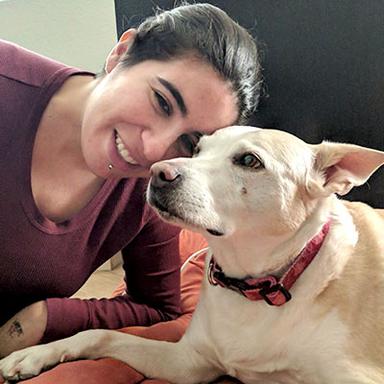
Daniela Lopez is the content manager at Adopt a Pet. As a content strategist, she has previously contributed to The Bark, The Wildest, and more. She has volunteered for several non-profits, including the Alameda Animal Shelter and Lost Our Home Pet Rescue, and is currently a foster for her local SPCA. In her free time, she has two mixed-breed rescue dogs keeping her on her toes.

Behavior & Training
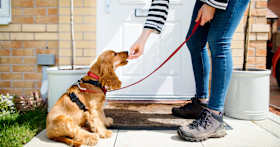
Behavior & Training

Behavior & Training

Behavior & Training

Adoption Advice
Did you just bring home an adorable puppy?
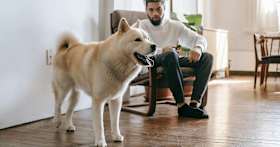
Behavior & Training
Learn effective methods to prevent and manage your dog’s marking behavior and how to redirect them to create a harmonious living space.

Behavior & Training
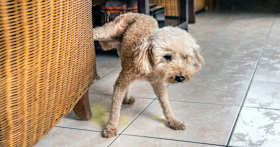
Behavior & Training